Just Earth News | @justearthnews | 17 Sep 2018
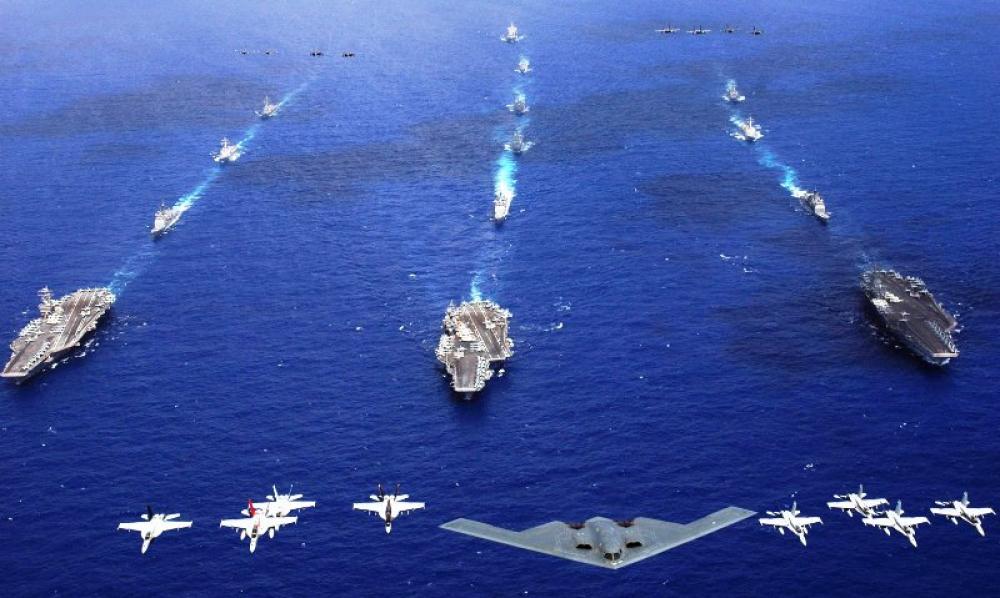
New Delhi/Beijing: The ownership of South China Sea for long has been a subject of debate. It has piqued the interests of many nations over the years. However, China, it seems, is having the last laugh.
Experts have said that with no viable opposition, including the US, to counter China, Beijing is slowly but surely growing its presence there.
The main South China Sea claimants are China, the Philippines and Vietnam.
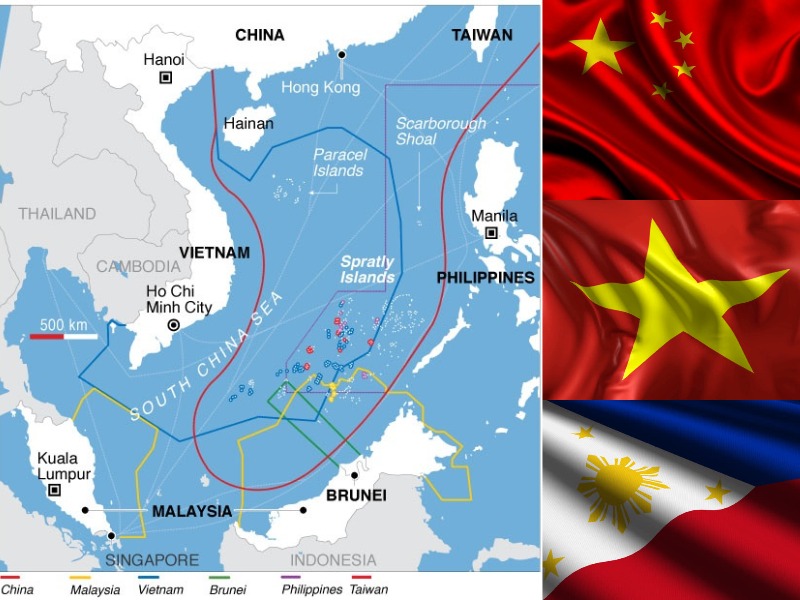
China, the Philippines and Vietnam are the main claimants of the South China Sea, though Brunei, Malaysia and Taiwan also have overlapping claims to parts of the sea. Image: Wikipedia and Wallpaper
Ever since China has informed The Philippines' President Rodrigo Duterte of the former's plan, if any transgression take place in the region, which displeases Beijing, the Filipino leader has mostly kept a low profile regarding the issue.
Following a meeting between Duterte and his Chinese counterpart Xi Jinping, where the two came across the issue of South China Sea, the former told reporters: "[Xi’s] response to me [was], ‘We’re friends, we don’t want to quarrel with you, we want to maintain the presence of warm relationship, but if you force the issue, we’ll go to war."
Almost a year later, Duterte, an otherwise outspoken leader, wouldn't say much about China's activity in the area.
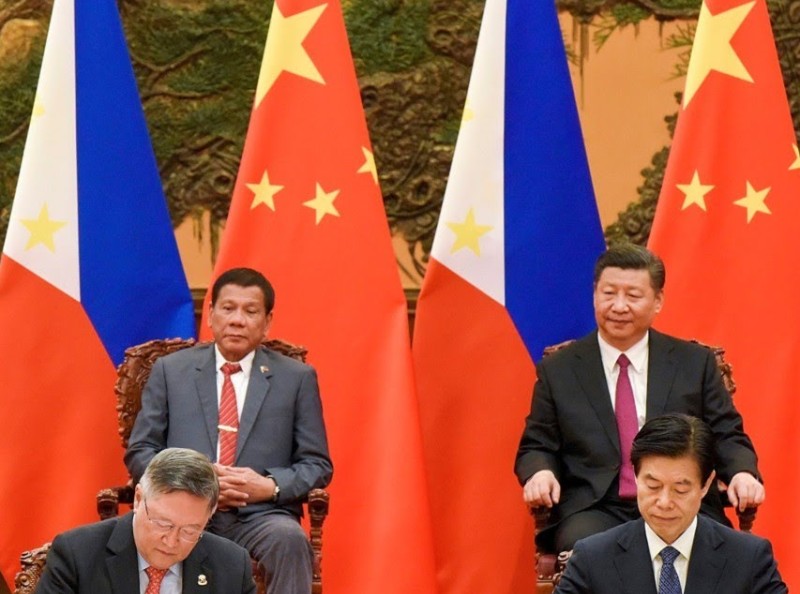
Rodrigo Duterte (L) and Xi Jinping (R) met at Beijing in 2017. Image: Screengrab from YouTube
The US, in the recent past, has spoken about consequences that China may face due to its activity in the South China Sea. Washington, like Vietnam, has been a critic of China's activities there, however, the former has failed to inspire others to take up arms against Beijing, rendering these so-called protest into distant murmurs.
"There are consequences that will continue to come home to roost, so to speak, with China, if they do not find the way to work more collaboratively with all of the nations,” U.S. Secretary of Defense James Mattis said on June 2 at the Shangri-La Dialogue in Singapore, a security conference organized by the London-based International Institute for Strategic Studies.
However, what Mattis did not say is the kind of consequences that China will face.
Truth be told, not even the US can force China to fall in line over the South China Sea issue.
Jay Batongbacal, director of the University of the Philippines Institute for Maritime Affairs and Law of the Sea, was quoted as saying by Nikkei Asian Review: "What China is winning is de facto control of nearly the entire South China Sea, including all activities and resources in it, despite the other surrounding Southeast Asian states' respective legal rights and entitlements under international law.”
Gregory Poling, director of the Asia Maritime Transparency Initiative at the U.S.-based Center for Strategic and International Studies, added: “There is no reasonable basis for the U.S. to use military force to push China off its outposts, nor would any country in the region support such an effort.”
Many experts are also viewing Duterte's government as weaker when compared to his predecessors', which was openly critical of China and its South China Sea militarisation.
Benigno Aquino, Duterte's immediate predecessor, ever dragged China to an arbitration tribunal in 2013, following a naval stand-off in 2012 around Scarborough Shoal, a rock claimed by both countries.
"In mid-2016 the tribunal dismissed China’s expansive “nine-dash line” claim to much of the South China Sea and its artificial island-building and expansion, all of which the tribunal said contravened the 1982 United Nations Convention on the Law of the Sea, or UNCLOS," read a report published in the Nikkei Asian Review.
In comparison, Duterte has been mild. Part of it is due to Manila's expectation of Chinese investment in the Philippines as part of Beijing's ambitious Belt and Road Initiative.
Speaking about the Filipino-Chinese bond, Philippine Defense Secretary Delfin Lorenzana said: "It is just natural for us to befriend our neighbor. We cannot avoid dealing with China, they are near, [and] many Filipinos, including me, have Chinese blood.”
Much stricter in his approach is Vietnamese Defense Minister Gen. Ngo Xuan Lich.
He told the Singapore conference, "Under no circumstances could we excuse militarization by deploying weapons and military hardware over disputed areas against regional commitments.”
Without explicitly naming anyone, he said that activities in the South China Sea are "a serious breach to the sovereignty” of another country that “violates international laws, complicates the situation and negatively affects regional peace, stability and security.”
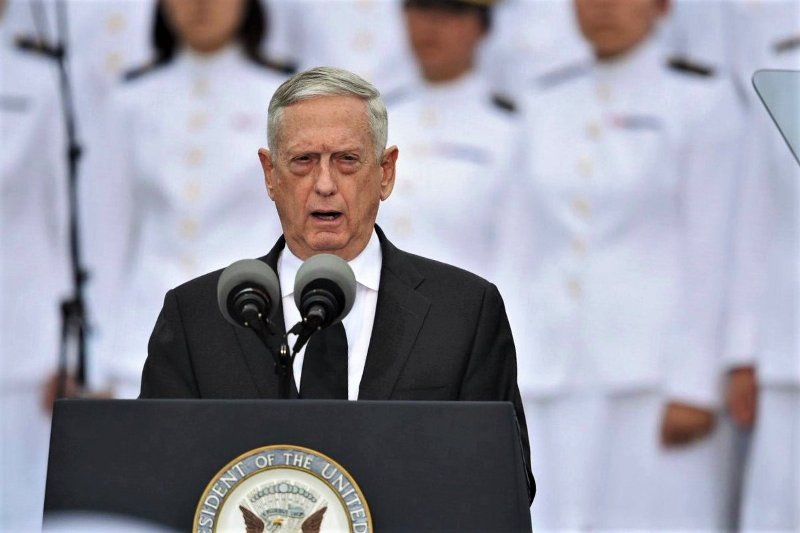
U.S. Secretary of Defense James Mattis spoke about China facing consequences at the Shangri-La Dialogue in Singapore in June. Image: DepSecDef/Twitter
Vietnam, which was hounded by the US for two decades, starting from the 1950s and lasting till mid 1970s, has Washington's support. However, according to experts, the difference in culture and ideology mean that the two may take time to gel, when it comes to waging a full blown war against China.
In addition, unlike the Philippines, Vietnam is not US' treaty ally, thus narrowing the limits of cooperation between the two nations.
Huong Le Thu, senior analyst at the Australian Strategic Policy Institute, said that even though relations between the two countries have bettered, he does not think that it would immediately mean jumping into the American camp.
India to the rescue?
Under the present government, India has assumed significant power in Asia.
This was visible during US President Donald Trump's 12-day Asia visit last year.
Almost in all of his speeches, the term Asia-Pacific was replaced by a more specific phrase, Indo-Pacific.
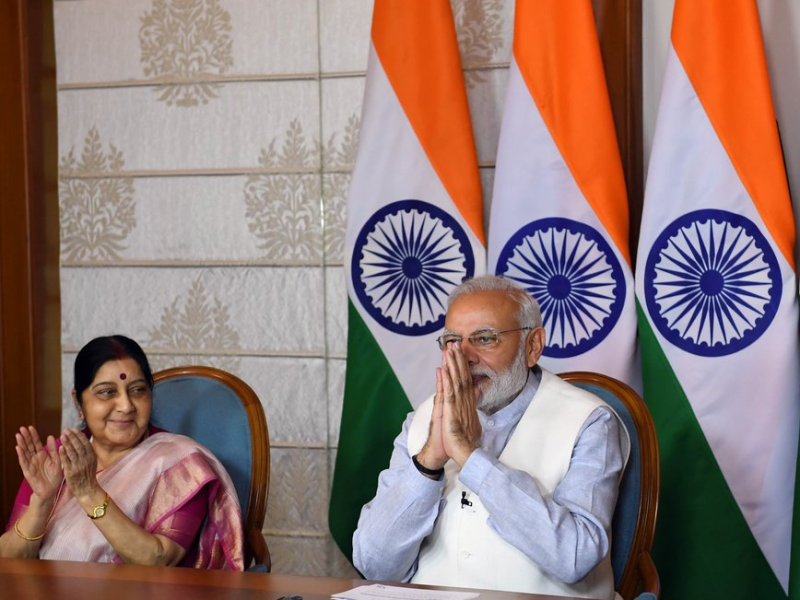
Under Prime Minister Narendra Modi's (R) leadership, India has assumed significant power in Asia. Image: Narendra Modi/Twitter
America has also announced that the U.S. Pacific Command would be renamed the Indo-Pacific Command. US wants India to take charge and if possible, resist China.
Mattis told the Singapore conference that the US is “standing shoulder to shoulder with India, ASEAN and our treaty allies and other partners, America seeks to build an Indo-Pacific where sovereignty and territorial integrity are safeguarded -- the promise of freedom fulfilled and prosperity prevails for all.”
Kori Schake, deputy director-general of the International Institute for Strategic Studies and a former U.S. State Department official said: "India is an Asian power. The countries adopting the term are encouraging India into greater cooperation in maintaining the maritime commons in the Indian and Pacific oceans."
Even though Indian Prime Minister Narendra Modi echoed US sentiments of a shared vision of an open, stable, secure and prosperous Indo-Pacific region, he has also praised Indo-China relations.
"Our cooperation is expanding. Trade is growing. And, we have displayed maturity and wisdom in managing issues and ensuring a peaceful border," Modi said.
Modi's comments have been hailed as positive by China.
With India keeping a balanced stance, perhaps it too does not inspire the others to take up a stand against China, who is slowly taking control over the South China Sea.
Banner Image: Wallpaper